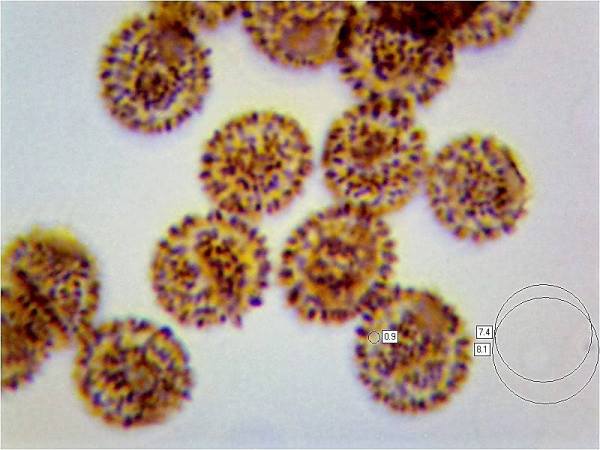Russula rutila Romagn. - Ruddy Brittlegill
Phylum: Basidiomycota - Class: Agaricomycetes - Order: Russulales - Family: Russulaceae
Distribution - Taxonomic History - Etymology - Culinary Notes - Identification - Reference Sources
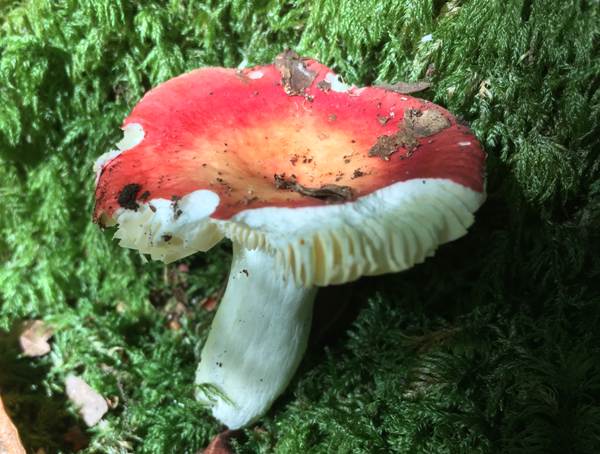
This beautiful but very rare mushroom is easily confused with other more common red or pink brittlegills. Many of the reddish brittlegills (Rusula species) can be very difficult or even impossible to separate without resorting to chemical tests and microscopy.
Distribution
This is a rare mushroom of broadleaf woodland. In Britain it has been found under oaks and Hornbeam trees. Russula rutila is also recorded on the mainland of Europe, including parts of Scandinavia and in France (where the holotype specimen was found.)
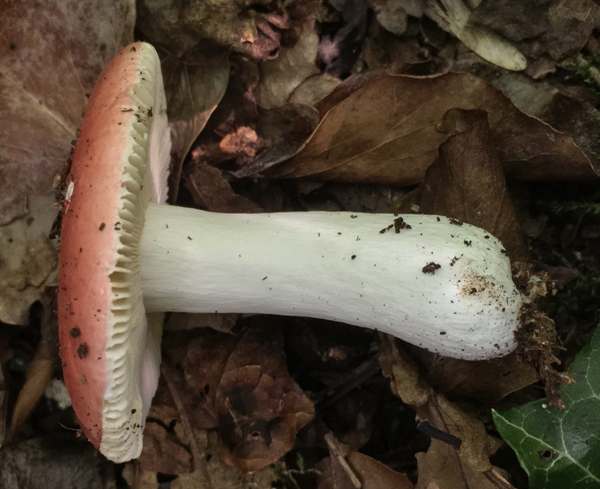
Taxonomic history
The Ruddy Brittlegill was described and given its currently-accepted scientific binomial name in 1952 by French mycologist Henri Romagnesi (1912 - 1999).
Etymology
Russula, the generic name, means red or reddish, and indeed many of the brittlegills have red caps (but many more are not red, and several of those that are usually red can also occur in a range of other colours!). The specific epithet rutila means goldish red and refers to the typical colour of the cap.
Identification guide
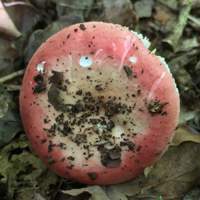 |
CapRed, pink or orange-red, sometimes paler towards the centre; dry and smooth to matt; 2 to 6cm diameter, convex, later flattening or developing a slight central depression. Peeling 1/3 to 1/2-way to the centre.. |
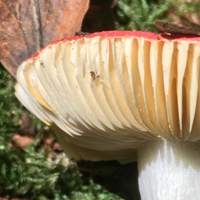 |
GillsPale ochre yellow, miderately crowded; brittle. StemSolid, brittle, with white flesh; cylindrical, often slightly tapering at base; 2 to 5cm long, 0.7 to 1.2cm diameter. Chemical testsStem flesh turns greyish pink when rubbed with crystals of Ferrous Sulphate (FeSO4); with Guiac it turns pale blue. |
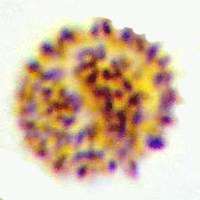 |
SporesSubspherical; 7.5-9.5 x 7-9µm; with warts and some short ridges, spine height up to 1.3µm.
Spore printBright ochre-yellow. |
Odour/taste |
Odour faint but pleasant, slightly fruity; taste acrid. |
Habitat & Ecological role |
Mycorrhizal with deciduous broadleaf trees, mainly Oaks and Hornbeams. |
Season |
August to October in Britain and Ireland. |
Similar species |
The Beechwood Sickener Russula nobilis is found most often under Beech trees. |
Culinary Notes
Russula rutila is very rare in Britain and Ireland and is therefore not a mushroom of culinary interest.
Reference Sources
Pat O'Reilly (2016). Fascinated by Fungi, First Nature Publishing
Geoffrey Kibby (2011).The Genus Russula in Great Britain, published by G Kibby.
Roberto Galli (1996). Le Russule. Edinatura, Milan.
Paul M. Kirk, Paul F. Cannon, David W. Minter and J. A. Stalpers. (2008). Dictionary of the Fungi; CABI.
Taxonomic history and synonym information on these pages is drawn from many sources but in particular from the British Mycological Society's GB Checklist of Fungi.
Acknowledgements
This page includes pictures kindly contributed by Simon Harding.
Fascinated by Fungi. Back by popular demand, Pat O'Reilly's best-selling 450-page hardback book is available now. The latest second edition was republished with a sparkling new cover design in September 2022 by Coch-y-Bonddu Books. Full details and copies are available from the publisher's online bookshop...

